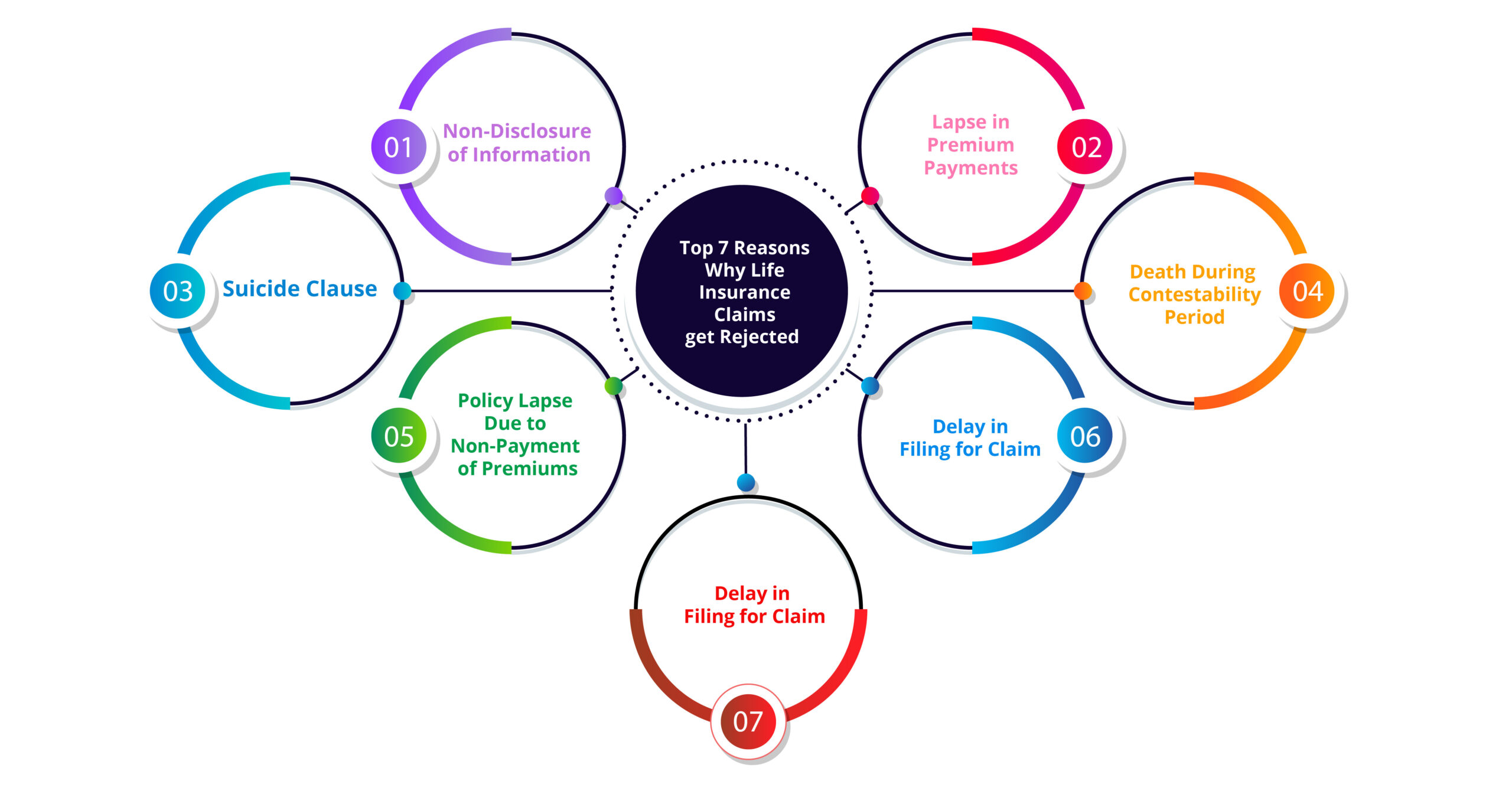
Life insurance is an important investment that provides financial security and peace of mind to individuals and their loved ones. It offers a lump sum payment or regular income to beneficiaries upon the death of the insured person. However, there are instances where life insurance claims get denied, leaving the beneficiaries in a difficult situation. In this section, we will discuss some common reasons for life insurance claim denials.
Reasons for Life Insurance Claim Rejection
1. Non-Disclosure of Information:
One of the most common reasons for life insurance claim denials is non-disclosure of information by the policyholder at the time of purchasing the policy. When applying for a life insurance policy, it is crucial to provide accurate and complete information about your health, lifestyle habits, occupation, and any pre-existing medical conditions. Failure to disclose this information can lead to claim denial in case of death due to any undisclosed condition or cause.
2. Lapse in Premium Payments:
Another common reason for life insurance claim denials is a lapse in premium payments. Life insurance policies require regular premium payments to remain valid and provide coverage in case of death. If the policyholder fails to make timely premium payments or misses paying premiums altogether, the policy may become void, and no benefits will be paid out upon their death.
3. Suicide Clause:
Most life insurance policies have a suicide clause that states that if the insured person dies by suicide within a specific period after purchasing the policy (usually one year), no benefits will be paid out to the beneficiaries. This clause aims to prevent people from
4. Death During Contestability Period:
One of the main reasons why life insurance claims get denied by insurance companies is due to the death occurring during the contestability period. The contestability period, also known as the incontestability clause, is a specific time frame that starts from when the policy goes into effect and usually lasts for one or two years. During this period, if the insured dies, their beneficiaries may face challenges in receiving their rightful claim.
The purpose of this clause is to give insurance companies an opportunity to investigate any discrepancies or fraudulent activities related to the policy before paying out a claim. This means that they have the right to thoroughly review any information provided during the application process and determine whether it was accurate and truthful.
5. Policy Lapse Due to Non-Payment of Premiums:
One of the most common reasons for life insurance claim denials is policy lapse due to non-payment of premiums. A policy lapse occurs when the policyholder fails to pay their premiums on time and as a result, the insurance coverage ends. This can be a devastating situation for the beneficiary who was relying on the payout from the policy to cover financial expenses after the death of the insured. In this section, we will discuss in detail why non-payment of premiums leads to policy lapses and what steps you can take to avoid it.
6. Hiding Other Insurance Policies:
Full disclosure is crucial when purchasing a new policy. Existing life insurance coverage impacts the sum assured eligibility. Be transparent about existing plans to ensure your family’s financial security aligns with your intentions.
7. Delay in Filing for Claim:
Promptly informing the insurer of the policyholder’s death is crucial. Delays in filing a claim can lead to investigations and potential rejection. Early notification allows the insurer to assess the cause of death promptly.
Being aware of these reasons and taking proactive measures can significantly reduce the risk of claim rejection. Remember, honesty, timely payments, and clear communication with the insurer are key to a reliable life insurance policy.

Leave A Comment